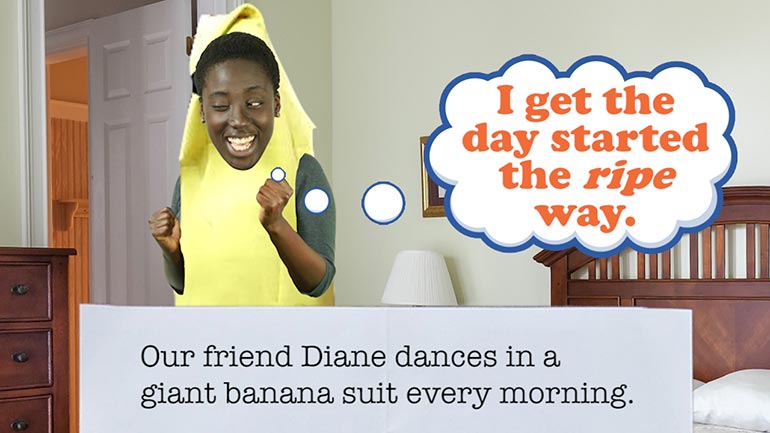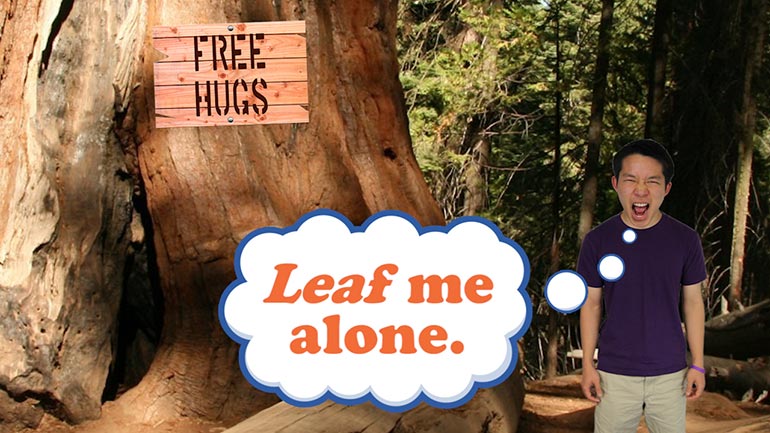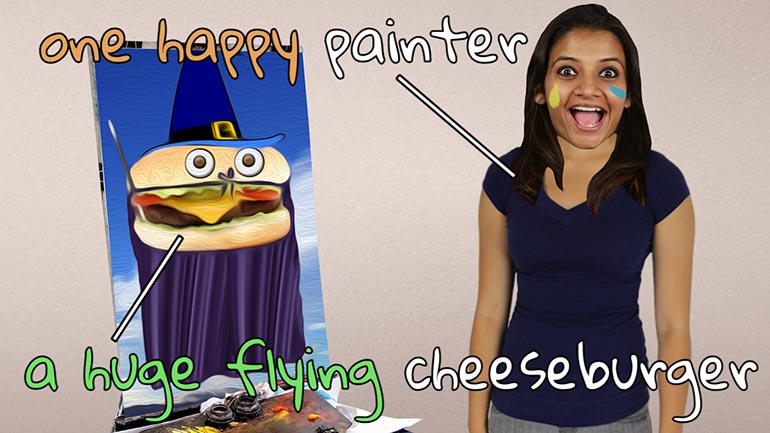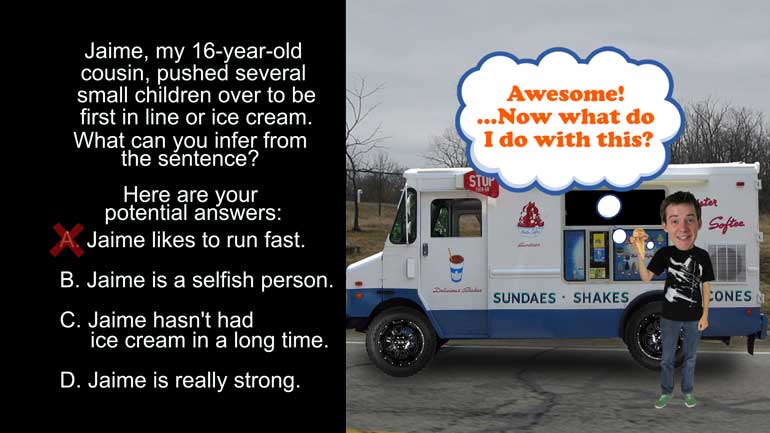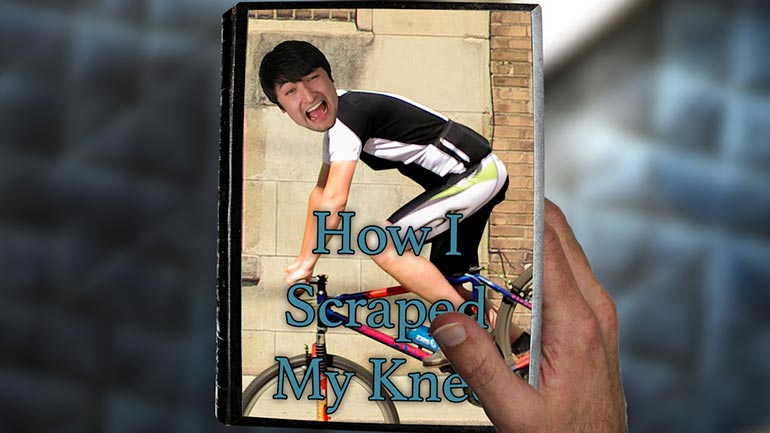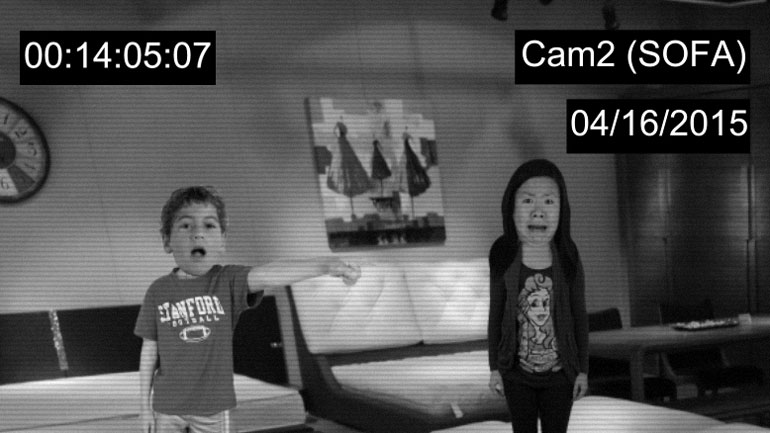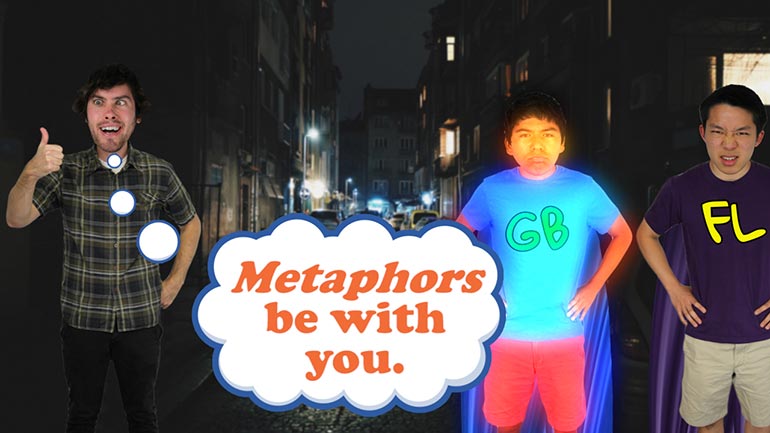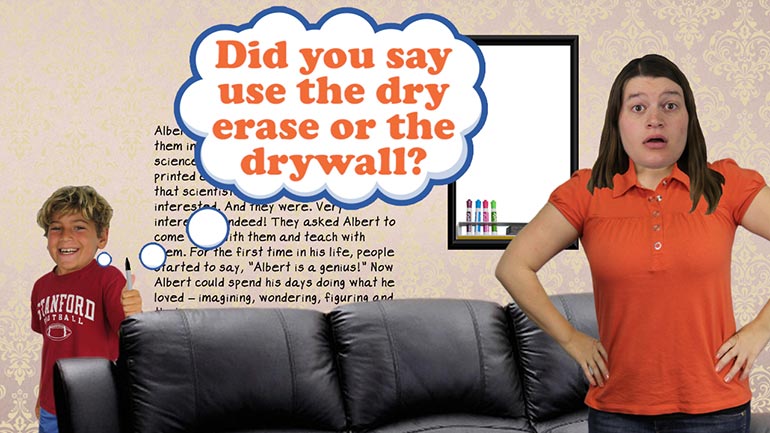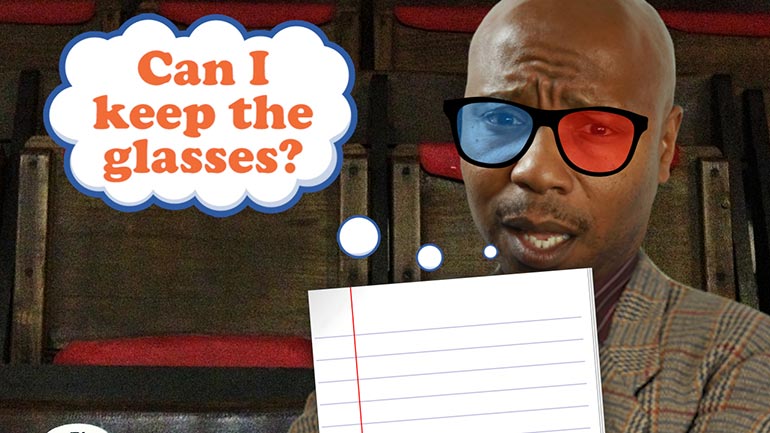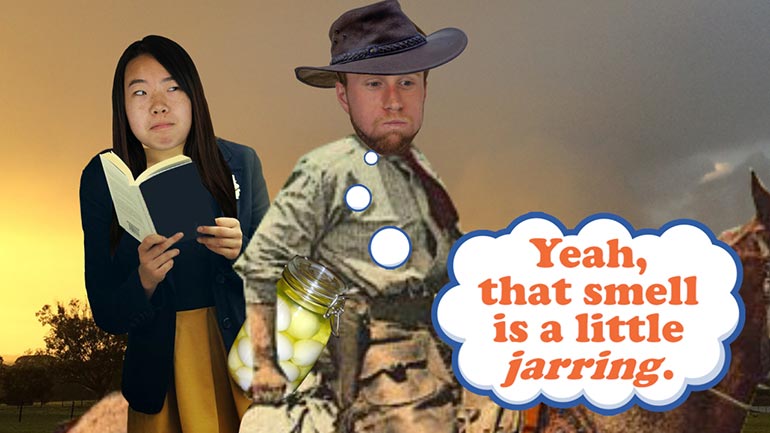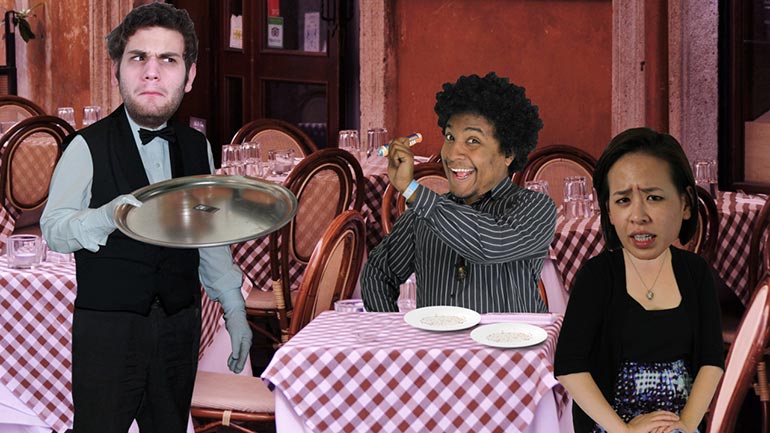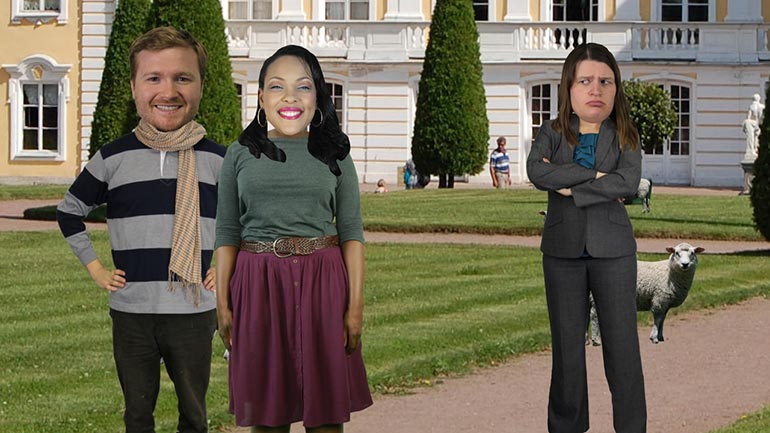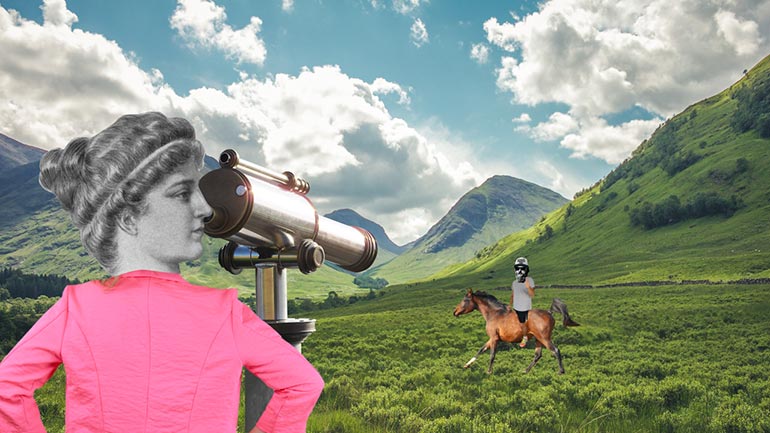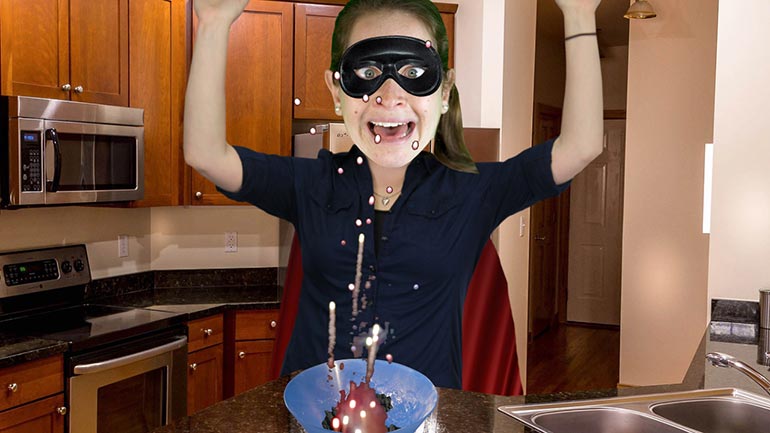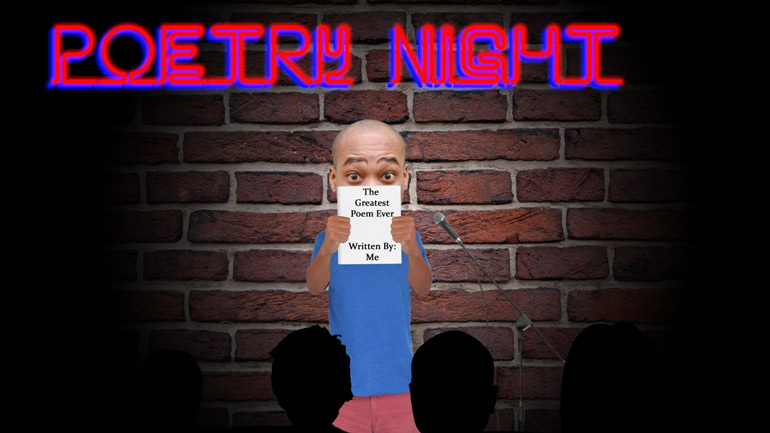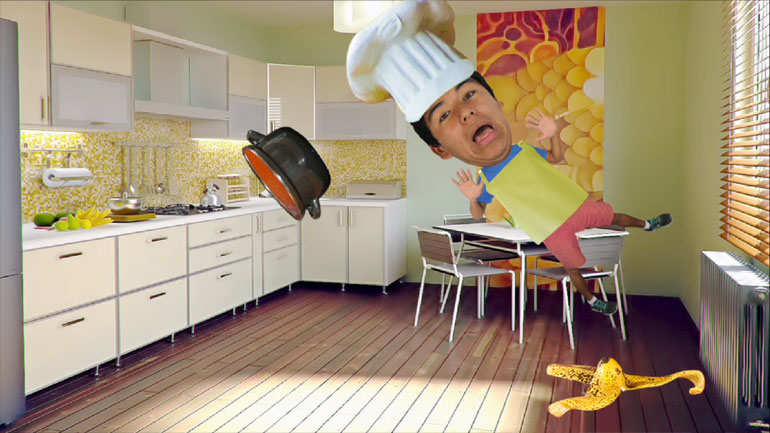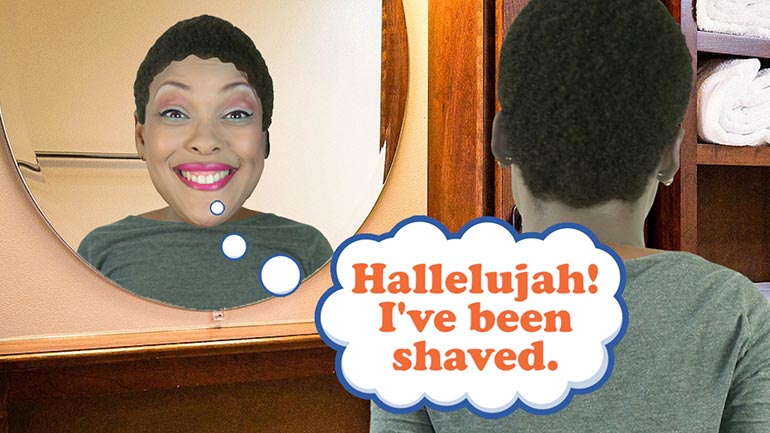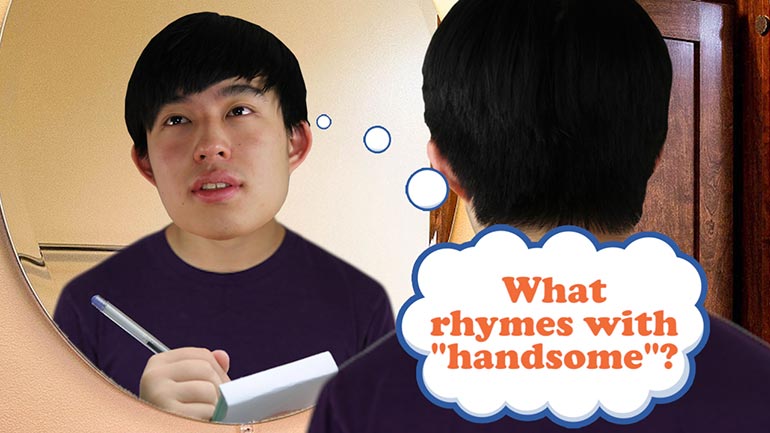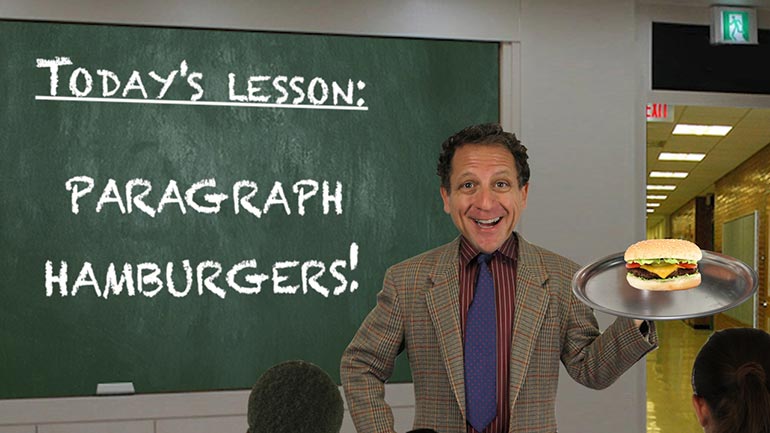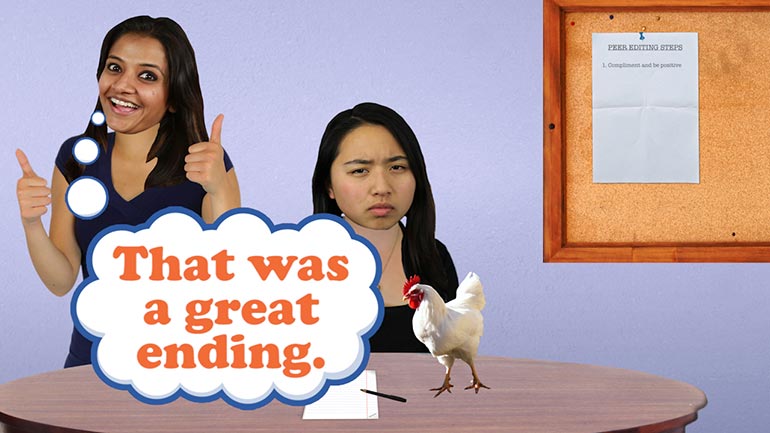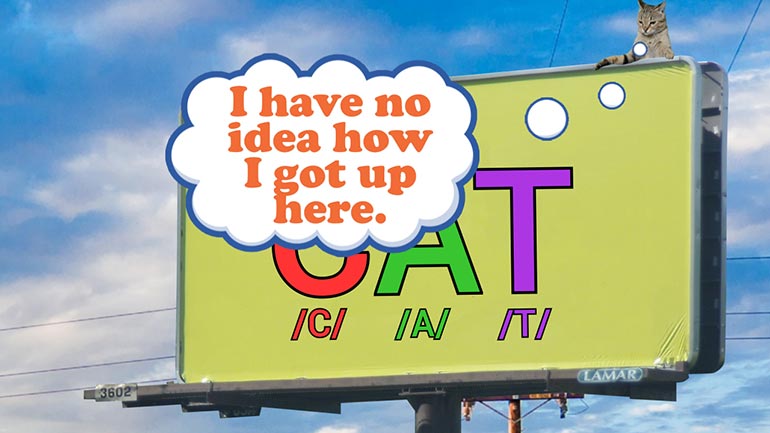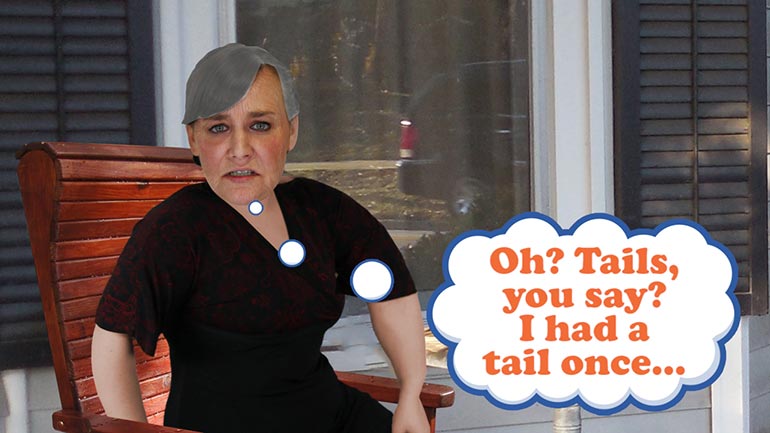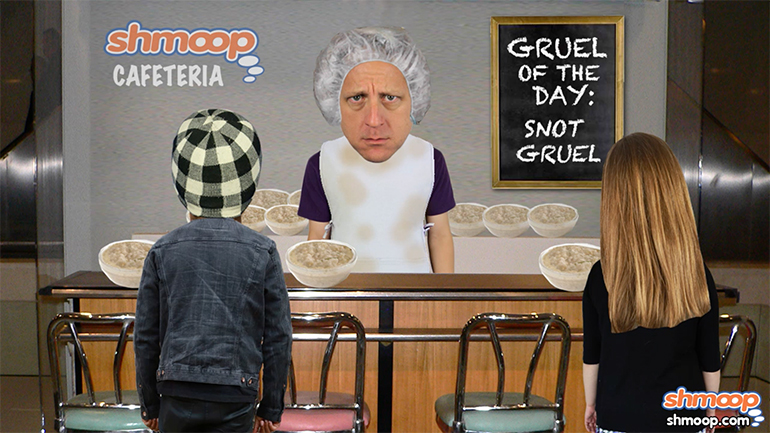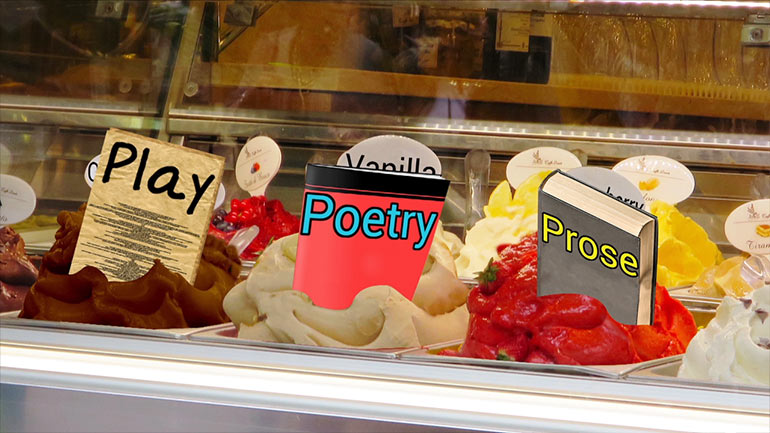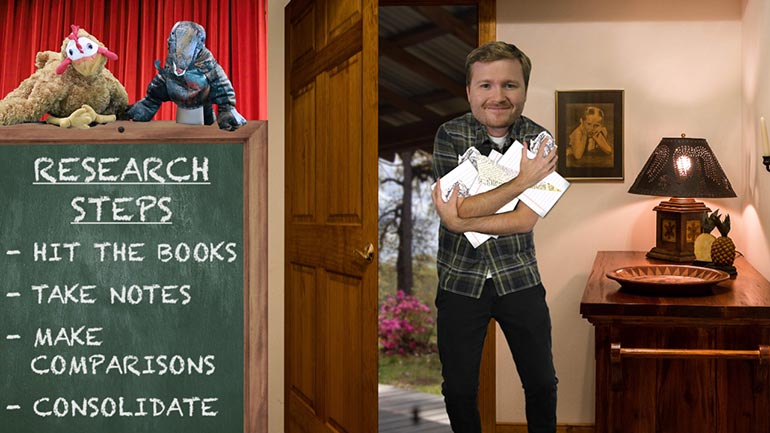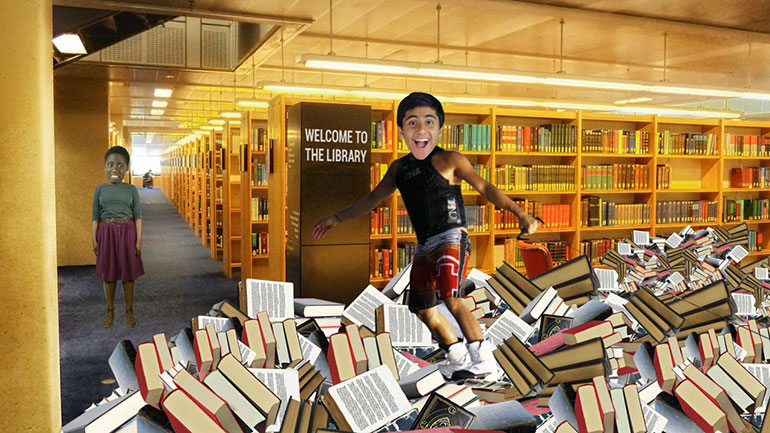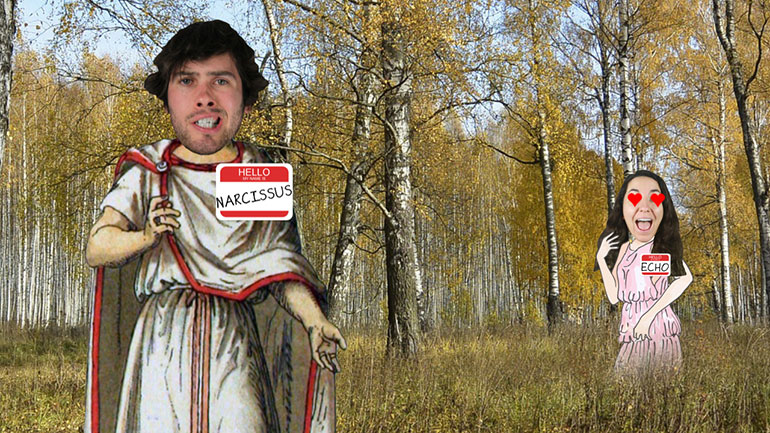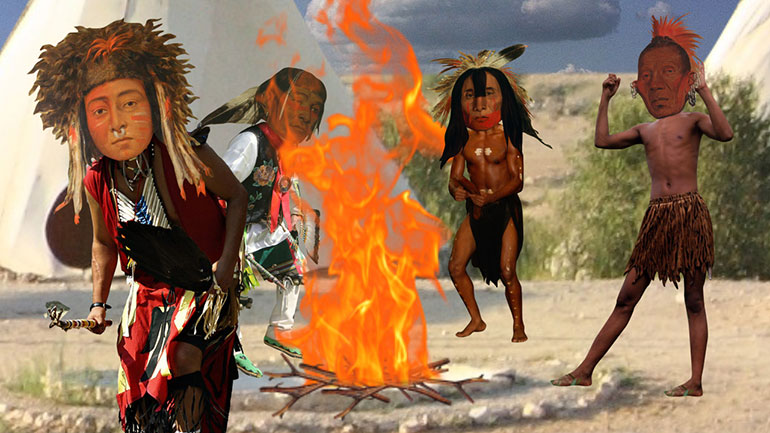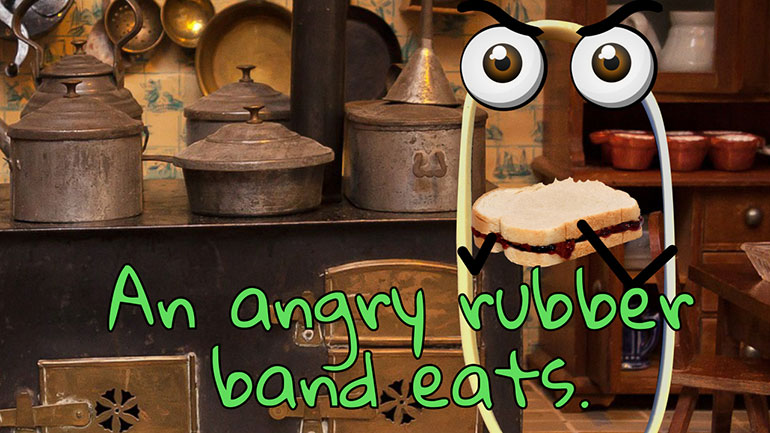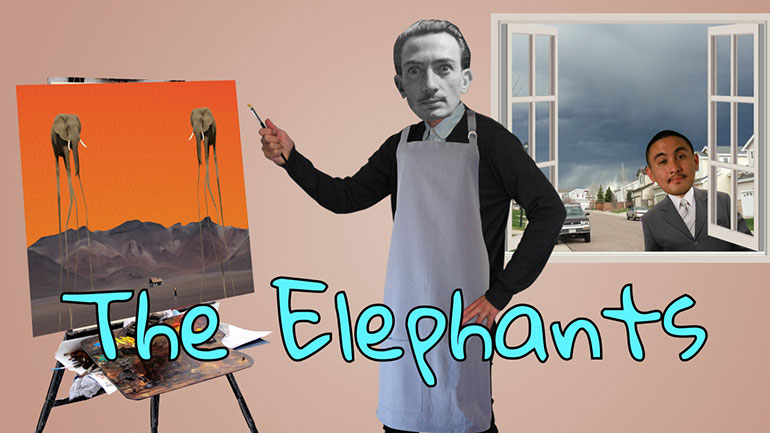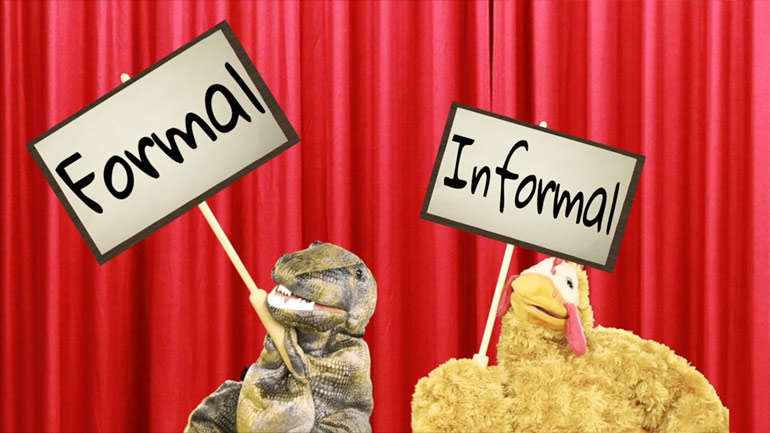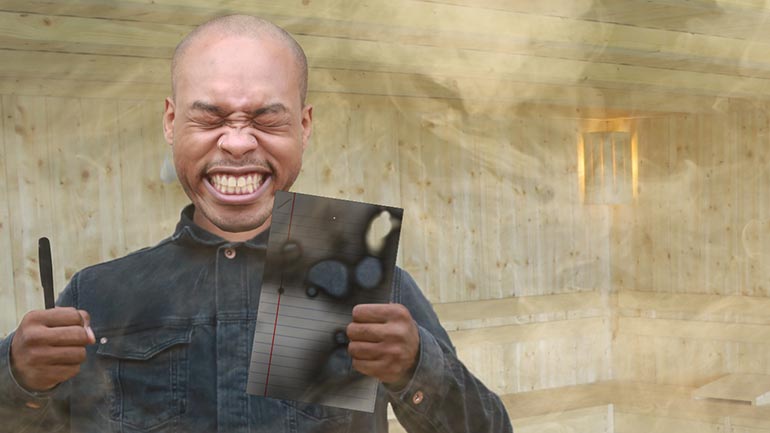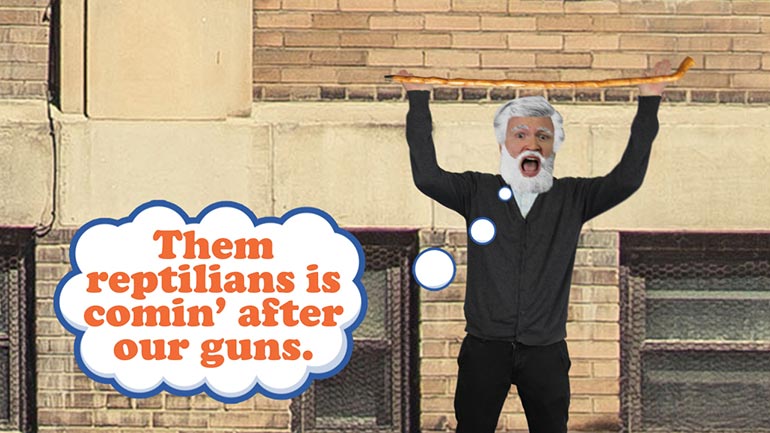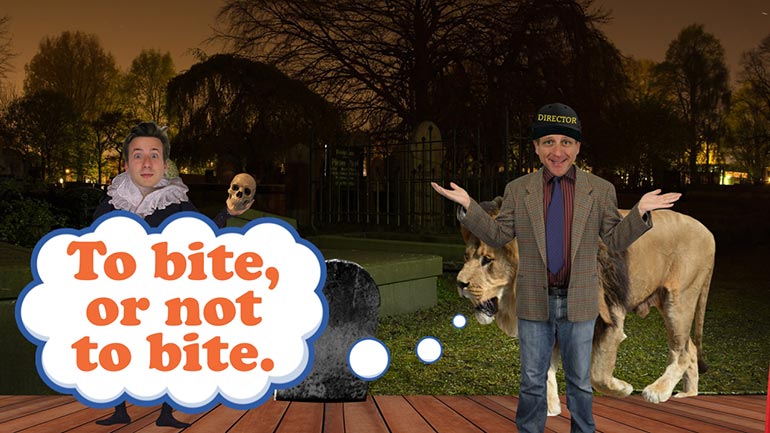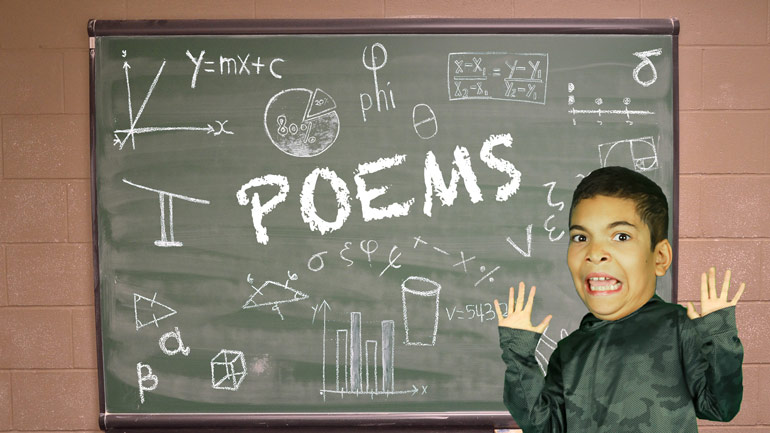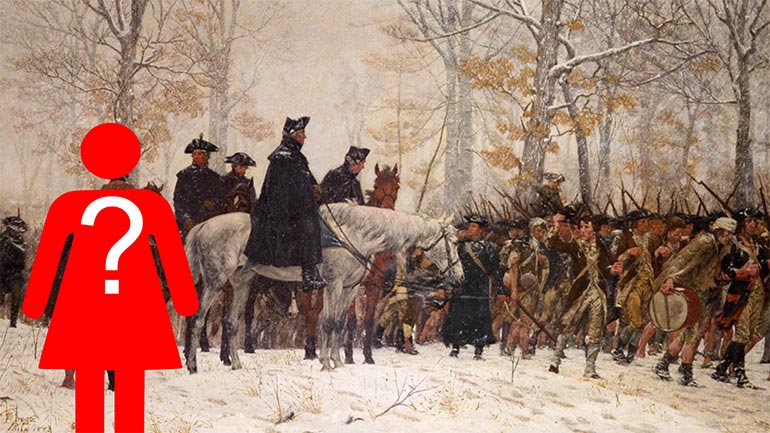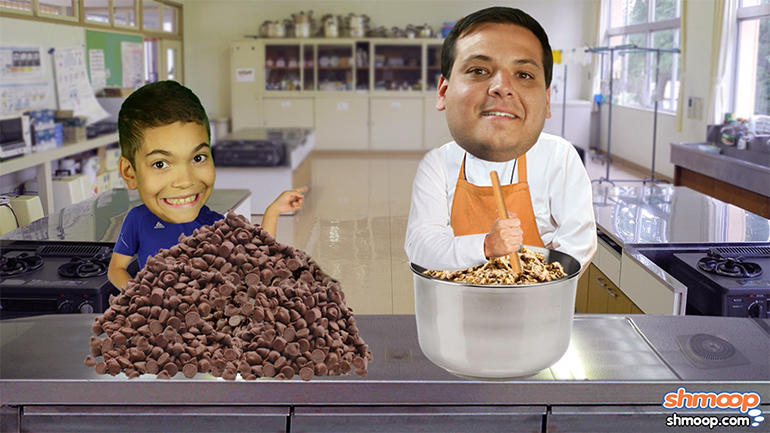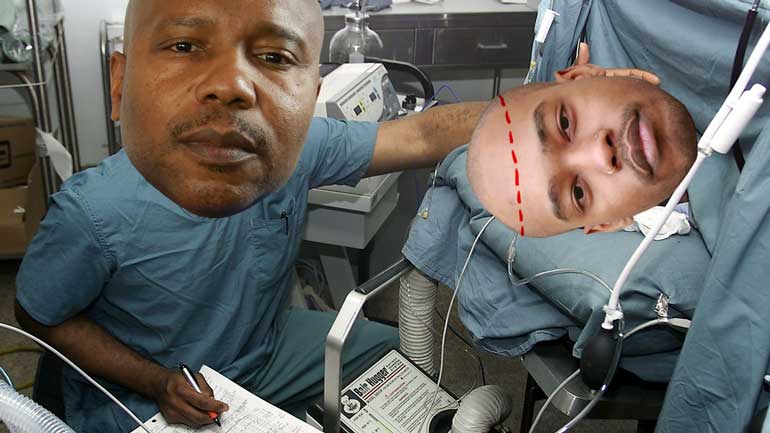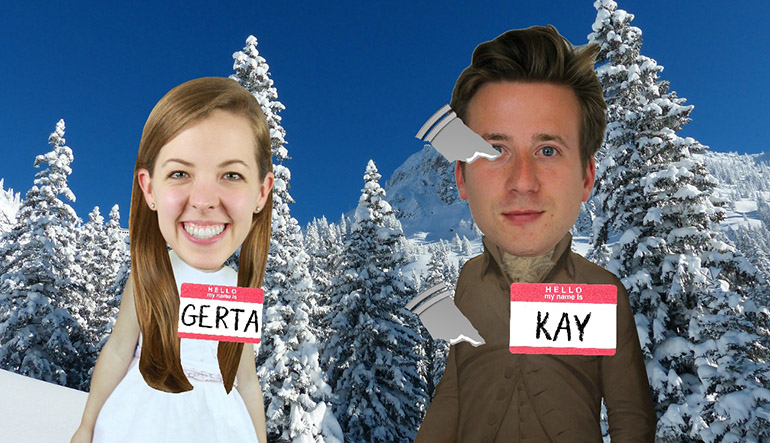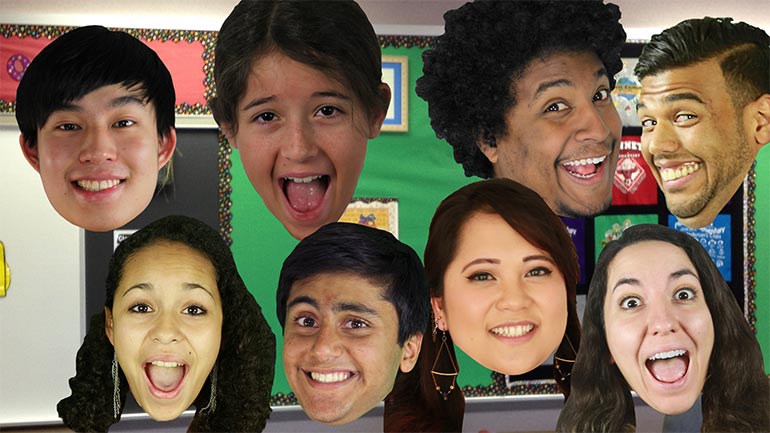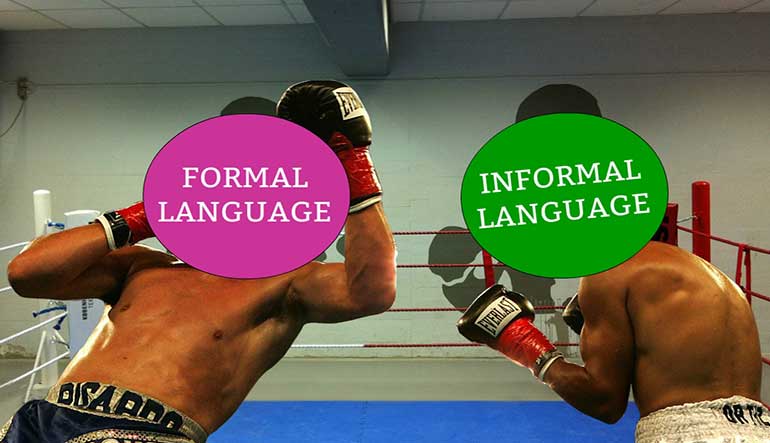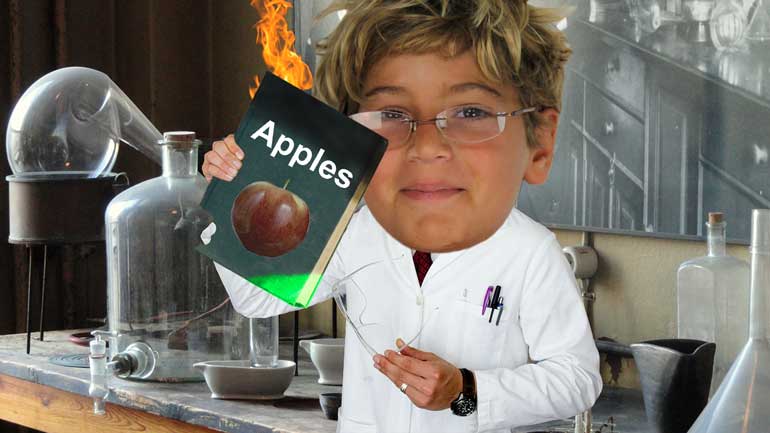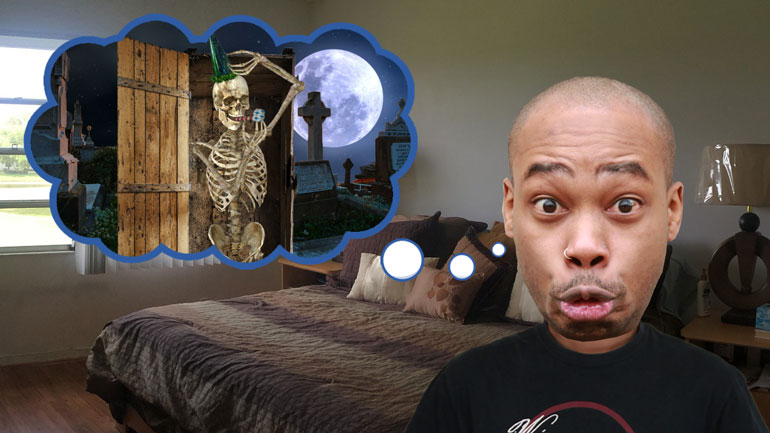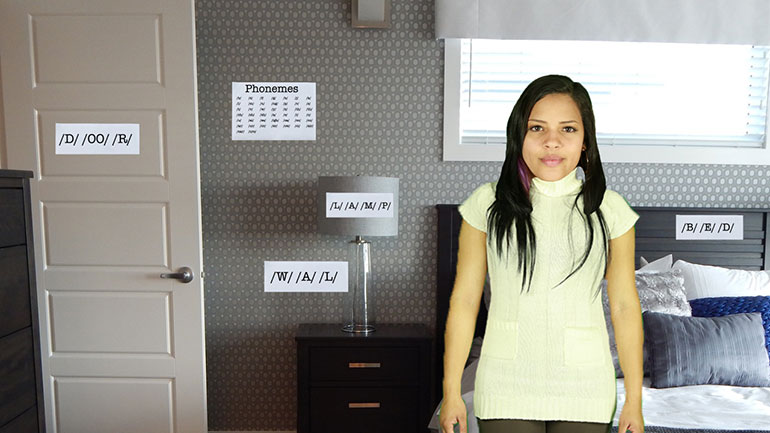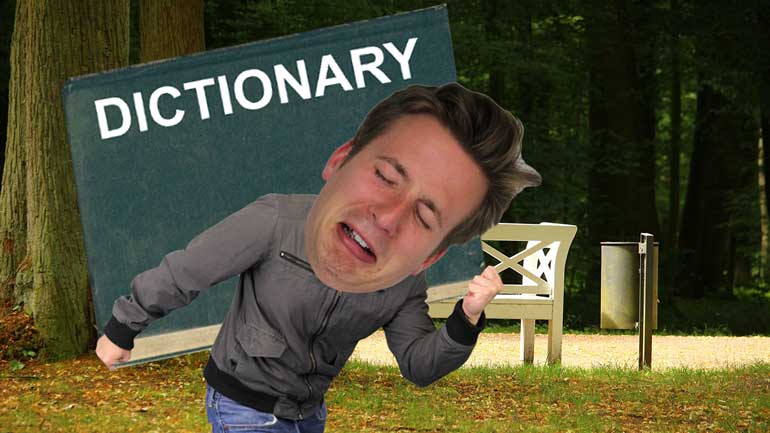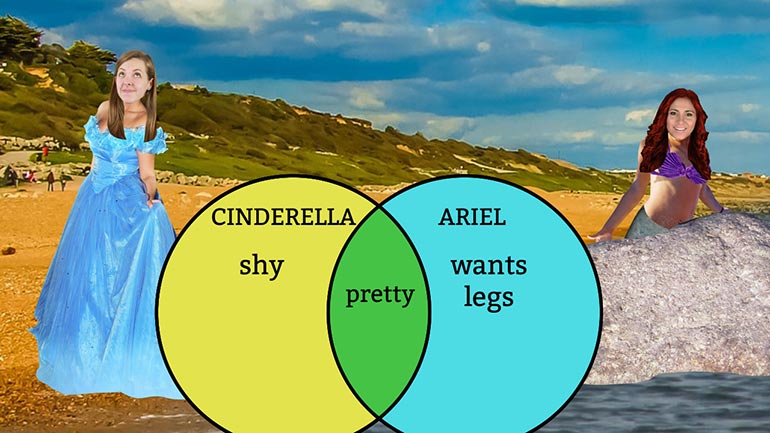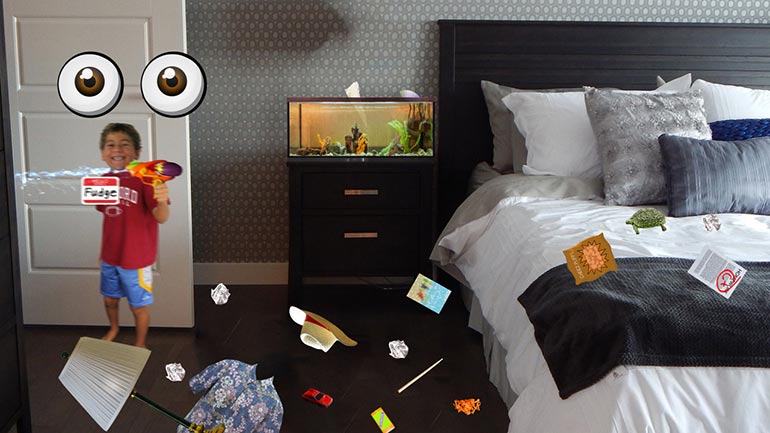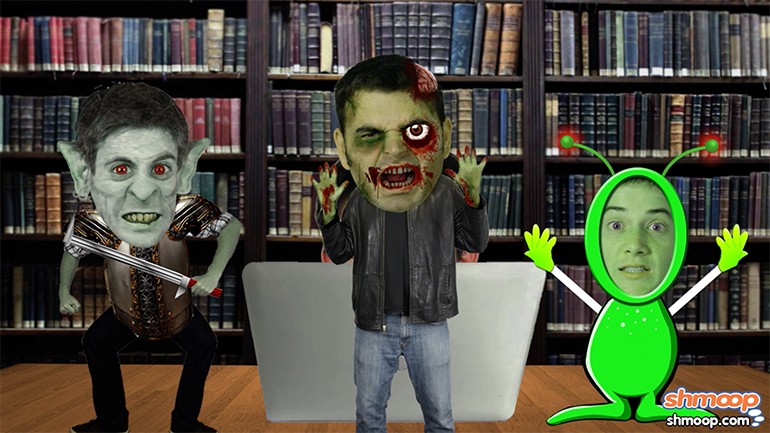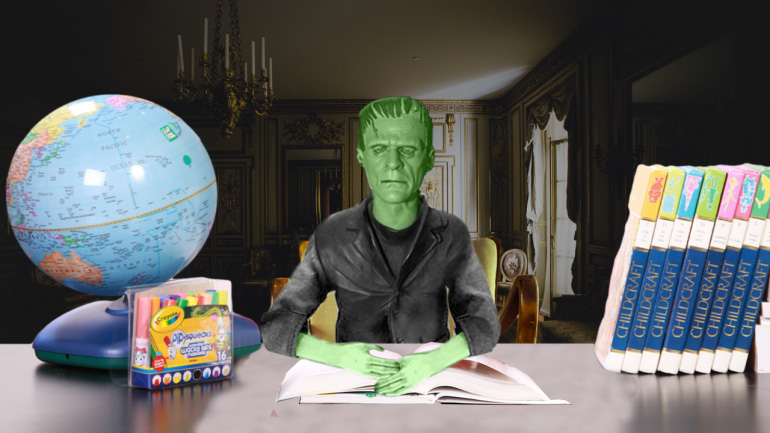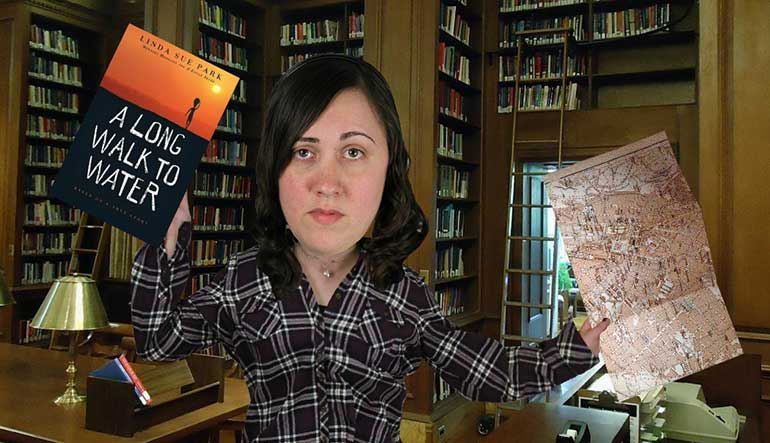ShmoopTube
Where Monty Python meets your 10th grade teacher.
Search Thousands of Shmoop Videos
Language Arts Videos 92 videos
In this lesson we'll subject you to some verbs and predicates. Each one is a necessary part of a complete breakfas—er...sentence.
Choosing words carefully is important. You may end up vexing the assemblage of citizens you're conversing with...or you might even just plain bore...
ELA 4: Find That Evidence 292 Views
Share It!
Description:
Sure we can say that Harry Potter made a living wrestling sharks, but that's a pretty useless claim without evidence to back it up.
Transcript
- 00:03
[Dino and Coop singing]
- 00:12
Picture it you spent your whole life thinking shrimp are super boring [A plate full of shrimp]
- 00:16
tasty sure but still super boring until one day you read about the mantis shrimp
- 00:21
which can punch with the same velocity as a gunshot from a rifle we're actually [A mantis shrimp wearing boxing gloves in a ring]
- 00:27
not making this one up these little guys are tiny terrifying warriors so now that
Full Transcript
- 00:31
you have a new fun opinion on shrimp you might find yourself tempted to share [A boy sharing a fact about shrimp to his friend]
- 00:35
with your friends if you do though you're gonna have to back up your claims
- 00:39
with evidence after all a shrimpy little death machine might cause a few raised [A shrimp on the stand in court wearing boxing gloves]
- 00:43
eyebrows luckily gathering evidence isn't too complicated we just need to
- 00:48
compile all the little details that helped us to form our new ideas and [Man gathering evidence from a cluttered garage]
- 00:51
opinions in the first place they might be facts or logical conclusions based on
- 00:56
the source material you read the source materials could be books magazines or
- 01:00
even websites shmoop what a weird cough we should get that checked out and even
- 01:05
if you're like cool I got everything I needed from those sources the first time [Boy wearing sunglasses jumps into bed to take a nap]
- 01:08
around time to take a nap you're actually going to want to go back to the
- 01:12
source material and re-read it hey you never know what fun little details you
- 01:16
might have missed like the fact that the Mantis shrimps punch is so strong it [Matis shrimp punching a fish]
- 01:20
boils the water around it into vapor bubbles and creates underwater shock
- 01:25
waves this thing sounds like a Bond villain back to the actual topic on hand [A mantis shrimp facing up to James Bond]
- 01:30
this process is especially important for schoolwork say you started writing up a
- 01:34
report about Australia but you want to find some evidence to support the claims [A man in the middle of an Australian wasteland]
- 01:39
you made in your report so here's a paragraph you read when writing your
- 01:42
report and you need to find evidence for two ideas in your paper one Captain
- 01:46
James Cook took possession of Australia in 1770 and two Europeans arrived in [Captain James Cook onlooking]
- 01:51
Australia in the 1600s so where's the evidence? Well, the first idea is pretty
- 01:56
easy if we look at that second sentence we see a nice clean fact that supports
- 02:00
the idea that Captain James Cook took possession of Australia in 1770 bingo what [Sentence of a paragraph highlighted stating James Cook took possession in the name of Great Britain]
- 02:05
about the second idea we're trying to show that Europeans arrived in Australia
- 02:08
in the 1600s there is no particular sentence that says this but it is a [A European man stood in a desert in Australia]
- 02:12
logical conclusion based on the first sentence it tells
- 02:15
us that Europeans began exploration in the 17th century since we're talking
- 02:19
about Australia and European exploration generally involved landing somewhere and [A European stumbling across an Australian man]
- 02:23
you know walking around we've got some solid evidence for the idea that
- 02:28
Europeans arrived in Australia in the 1600s and it doesn't end with digging up
- 02:33
facts about the natural world we can even find evidence when we're reading [Man digging up artifacts from the ground]
- 02:37
fiction too. Take the following bit from one of Aesop fables the hare with
- 02:41
many friends the hare with many friends if someone told you that the hare in
- 02:45
this story was scared could you find some evidence to back that up well if [A hare trying to be brave]
- 02:49
you read carefully you'll notice that the text never actually thought out says
- 02:53
the hare was scared, but if you pay attention to what the hare is doing
- 02:57
she's trying to escape from a bunch of hounds which is exactly the kind of [A hare running away from a hound in a field]
- 03:00
behavior you would expect from someone who's very afraid of hounds, not that we
- 03:04
know that from experience or anything it's a logical conclusion we're drawing
- 03:08
from the text which makes it solid evidence and that's it all you've got to
- 03:12
do is read the source material again to find supportive information and boom [An old man reading a Science Stuff book]
- 03:16
you'll find evidence man that would make detectives life so much easier we should
- 03:21
show them this video [A detective speaking to a man]
Related Videos
Sticks and stones, right? Well...only sometimes. It's a good idea to make sure your words aren't going to hurt others. Let's look at some ways to d...
Learn to debate like a champ. It's way better than debating like a chimp. That just takes mudslinging to a whole new level.
Today we'll learn about biographies and autobiographies. And no, the second one has nothing to do with the lives of cars.
In this lesson we'll subject you to some verbs and predicates. Each one is a necessary part of a complete breakfas—er...sentence.
Choosing words carefully is important. You may end up vexing the assemblage of citizens you're conversing with...or you might even just plain bore...

